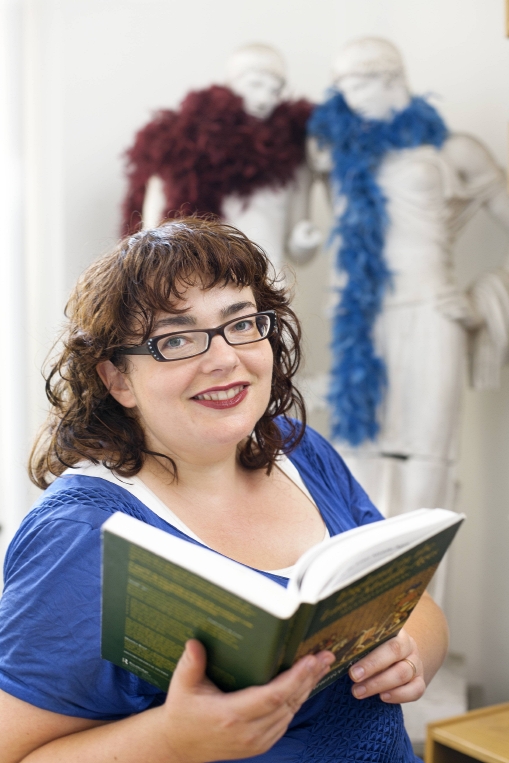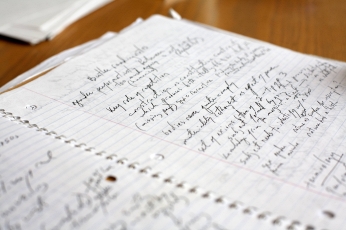COVER STORY
In the humanities, classrooms are labs and students are collaborators
(Page 1 of 4)
Masha Raskolnikov, associate professor of English.
The notebook on the table in front of Masha Raskolnikov, associate professor of English, holds only a few lines of text – the three points she absolutely must cover today. But what most interests her is what happens between these points, the experimental realm in the classroom where anything can happen.

A view of one of Raskolnikov's notebooks in her office. See larger image
Outside the window, the sun sparkles on a snow-covered slope, but no one is paying attention to its allure. A young woman is offering an insight about Shakespeare's famous stage direction from "The Winter's Tale": "exit, pursued by bear." The humor, the student says, comes from the fact that animal-human violence isn't as morally disruptive to us as human violence.
"What an interesting idea!" exclaims Raskolnikov. "I never thought of it that way."
The students may not have realized it, but Raskolnikov was having an "aha!" moment. Such moments happen for Raskolnikov – recipient of a 2008 Appel Fellowship for Humanists and Social Scientists – in virtually every class, though it is the process of discovery that advances her research rather than any individual insights in the classroom.
"By the end of the semester I know something I didn't know at the beginning, and it's because of the encounter with the text in the presence of the students," she says.
- View entire story as one page -